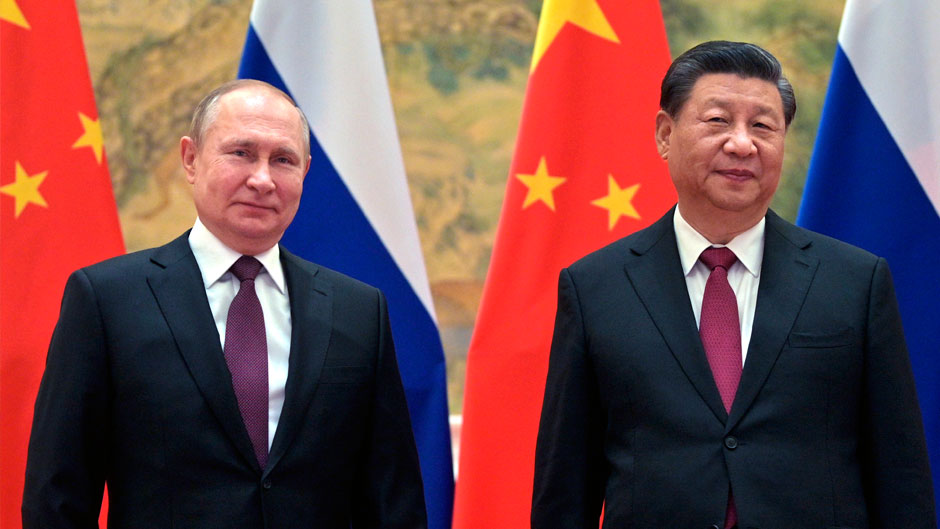As the war in Ukraine rages on, United States intelligence officials recently found evidence that Russia may have reached out to another superpower for some help: China.
It is one of the few nations that has not denounced Russia’s invasion of Ukraine. But soon after the alleged request for help, Chinese and Russian officials were quick to deny the exchange even transpired (where Russian leaders reportedly asked for specific weapons and economic aid). Chinese officials also denied any willingness to help Russia.
Still, a day later, a top China official met with Jake Sullivan—the U.S. national security advisor—in Italy, where he apparently warned China to stay out of the Russia conflict.
The war of words simply highlights the difficult position that China is in right now, said June Teufel Dreyer, political science professor and the University of Miami’s veteran China scholar. She also teaches about the politics of Asia, along with U.S. defense policy.
“China has been very circumspect and denied even knowing the Ukraine invasion was going to take place, but most people don’t believe this,” said Dreyer, who also leads the American Association for Chinese Studies. “But Putin went to China recently, for the Paralympics, so many believe that at that time he may have warned Chinese President Xi Jinping there would be some action against Ukraine. And they likely had a less than cordial conversation. This could explain why Putin left conspicuously before the banquet.”
Now, the communist nation is staying mute for a multitude of reasons, according to Dreyer. “They will want to sit on the fence as long as possible,” she said.
First, Chinese leaders likely want to maintain a strong relationship with Russia for economic reasons. China is the largest consumer of Russian oil. In addition, both nations have maintained authoritarian governments, so they are isolated among many of the world’s most powerful nations that are democracies today.
However, China’s economic health also depends on its positive relationships with the western world, and the United States in particular, who is its top trade partner, Dreyer noted. It also relies on a strong relationship with Germany and other European nations for growth, and many of these countries are strongly opposed to the Russian-led war in Ukraine.
“The out and out invasion into Ukraine galvanized public opinion—not just in the U.S. but in other nations as well,” Dreyer said. “The western powers and European countries got nervous because they are thinking, today it’s Ukraine, but tomorrow it’s us. So, there are important geopolitical forces at work here, and China would rather not be seen as backing this situation.”
Joaquín Roy, international studies professor and the Jean Monnet chair and director of the University’s European Union Center of Excellence, agreed with Dreyer’s assessment that China is being silent.
Roy added that China’s top priority is a stable marketplace and that, like the rest of the world, the Asian giant struggles to understand what Putin is after.
“China is not for a domination of certain parts of the world, as the former Soviet Union was, or as it appears is motivating Putin,” said Roy. “For China, the world is actually a market, and it needs to have a market that is stable.”
Though Russia has apparently sought support from China, Roy doubted that any aid beyond some funding would be coming. The European expert noted that China is also wary of how the war may be interpreted within its own borders.
“Anything that actually would represent a danger for that amazing miracle that it has constructed—a super authoritarian state in the political sphere and super capitalistic in the economic sphere—China doesn’t want that to change,” Roy said.
Dreyer echoed the notion that China has concerning domestic problems, which include another COVID-19 surge (driven by the omicron subvariant BA.2) that has prompted many lockdowns in Shanghai and Shenzhen, the financial centers where the nation’s two stock exchanges are located. News reports indicate that these lockdowns could also impact the global supply chain.
So, are there benefits to China staying neutral?
“They are helping Russia in a way by not condemning the war,” she said. “And Russia is hurting financially, so China is happy to buy their oil.”
In fact, Dreyer says that she thinks the opportunistic Chinese may be taking advantage of the moment and negotiating lower rates on Russian oil.
“The Chinese are clever and don’t like to pass an opportunity up,” she said.
But there are also drawbacks to staying silent. The Chinese also do not want to be seen as supporting a war that is creating a humanitarian crisis, Dreyer added. Not to mention that China probably cannot afford to bail out Russia, as its economy is still recovering from the COVID-19 pandemic.
Yet China’s stance also indicates a shifting economic and political climate.
For example, the fact that Putin might now need China’s help to achieve his goal—to restore Russia to its imperial glory—is a feather in Xi’s cap.
“Back in the days of imperial Russia and the Soviet Union, China was subordinate to Russia. Now, Putin is the weaker partner. And he doesn’t look like the type of person whose ego will be comfortable with this,” Dreyer pointed out. “Yet, no matter what, he will owe the Chinese now.”
Meanwhile, Putin’s dogged stance on Ukraine may not help him foster a stronger bond with China.
“I don’t think Chinese leadership is interpreting him as a partner [as he pursues this invasion and potentially more aggression],” Roy said. “China clearly sees the EU as a market and isn’t seeking to antagonize those countries or the United States. Neither the Chinese military nor the political leadership really welcome a violent competition with the U.S.”

